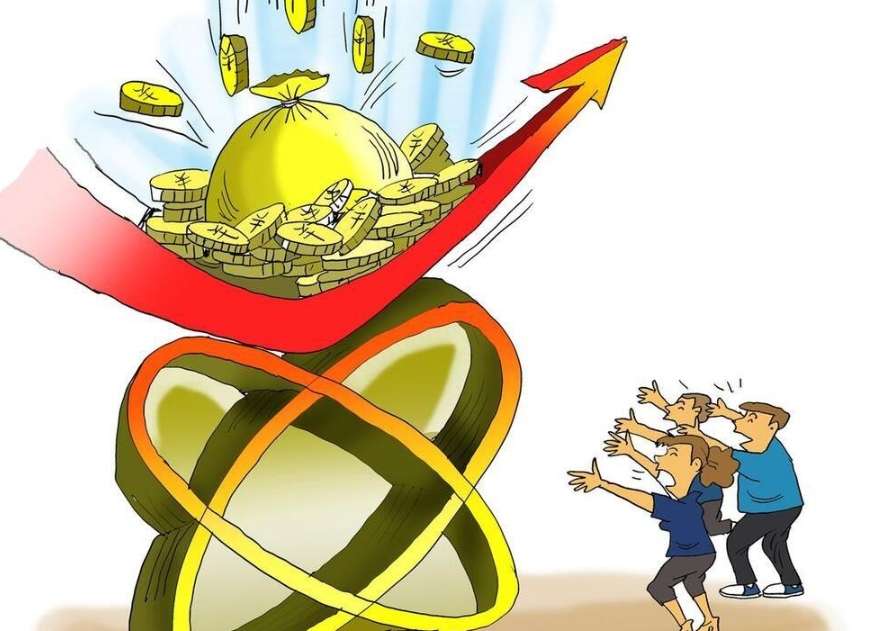Recently, the International Monetary Fund (IMF) published an insightful report that evaluates South Africa’s economic and financial situation as well as its outlook. As of June 2024, the market reacted positively to various measures, yet the new government faces multiple hurdles. These hurdles include a declining per capita GDP, soaring unemployment rates, persistent poverty and inequality, and a burgeoning public debt accompanied by escalating interest expenses that compete with other urgent spending needs. Moving forward, the South African economy is projected to pave a path towards more inclusive, sustainable, and greener growth, provided it implements structural reforms to maintain macroeconomic stability while tackling these numerous challenges.
The report forecasts that by 2025, South Africa will witness a rise in real GDP growth to 1.5%. This is buoyed by several favorable conditions, which include stabilizing power generation, a loosening of monetary policy, and recovering private consumption and investment. From a medium-term perspective, the reforms aimed at tackling bottlenecks in electricity and logistics are anticipated to gradually enhance the investment climate. Consequently, the IMF expects South Africa’s average economic growth rate over the next decade to reach around 1.8%. Moreover, it predicts an average inflation rate of 4% for 2025, stabilizing around the midpoint of the South African Reserve Bank’s target range, which is set at 4.5%. However, it also warns that the fiscal deficit is expected to remain high during the medium term, with public debt continuing to climb.

The report emphasizes a high degree of uncertainty surrounding South Africa's economic outlook, with risks skewed towards a downward trajectory. External risks include increasing geopolitical divisions, a surge in protectionist policies, protracted geopolitical conflicts, further slowdowns in major trading partners' economies, and tighter global financial conditions. Domestically, resistance and delays from various political and economic interest groups towards necessary reforms may exacerbate these risks. Nonetheless, some experts maintain an optimistic perspective, arguing that if the South African government can implement structural and fiscal reforms more swiftly and comprehensively, such as promoting growth, reducing public debt, and lowering the fiscal deficit, it could significantly boost economic confidence and growth.
The report outlines several key policy recommendations for the South African government. First, there is a need to ensure fiscal sustainability, which includes reducing the fiscal deficit, implementing fiscal tightening measures to steadily lower public debt, and reestablishing fiscal buffers through reforms aimed at enhancing public spending efficiency. Second, the government should maintain a normal and flexible monetary policy to stabilize inflation expectations while reinforcing macroeconomic stability. Third, it is crucial to uphold financial stability, which entails advancing reforms related to financial safety and supervision, consistently monitoring financial risks, and enhancing frameworks for anti-money laundering and counter-terrorist financing. Lastly, the report calls for promoting sustainable, inclusive, and green growth. This encompasses rigorous implementation of electricity and logistics reforms designed to mitigate critical supply constraints, improving the business environment, shaping labor market governance, supporting investment and job creation, reducing economic inequalities, and advancing climate goals, with particular emphasis on enhancing communication with society to reduce the costs of reform and bolster acceptance among the general population.
In response, the South African Treasury released a media statement indicating that its concerns align with the government's strategies to address both current and long-term economic challenges. Following a period of lackluster performance in 2023 and 2024, the South African economy is expected to rebound in 2025, supported by factors such as an increase in purchasing power, job recovery, and wealth growth, leading to a projected growth rate increase from 1.1% in 2024 to 1.7% in 2025. Compared to the budget review in 2024, the risks to South Africa's economic outlook have become more balanced.
The Treasury committed to pursuing structural reforms, including fiscal tightening, to ensure the sustainability of debt pathways. In the fiscal years 2023 to 2024, substantial progress was achieved, marking the first primary surplus in 15 years. It is anticipated that the overall budget deficit for this fiscal year will reach 4.7% of GDP, declining further to 4.3% by the 2025 to 2026 fiscal year. Currently, the debt-to-GDP ratio is expected to stabilize by the 2025 to 2026 fiscal year, with the debt service cost reaching a peak as a proportion of income during the same period. The main objectives of South Africa's reform agenda are to improve the business environment and foster equitable growth, focusing on stabilizing the power grid, enhancing freight and port operational efficiency, implementing electronic visas, and prioritizing the development of targeted industries. Notably, nearly 94% of the reforms planned for 2024 have either been completed or made significant strides toward execution, and the government plans to continue strengthening governance and reform in priority areas.
Economic observers in South Africa note that, while the current economic situation is relatively stable and presents numerous opportunities for development, there remain myriad uncertainties and challenges. Particularly, the progress and effectiveness of major economic and social reforms put forth by the National Unity Government face scrutiny amid political stability concerns. Disagreements and conflicts on domestic and foreign policies have emerged among the major political parties within the coalition. The reforms targeted at essential sectors such as basic education, universal health coverage, electricity systems, and property expropriation have sparked extensive debate.
Leave A Reply